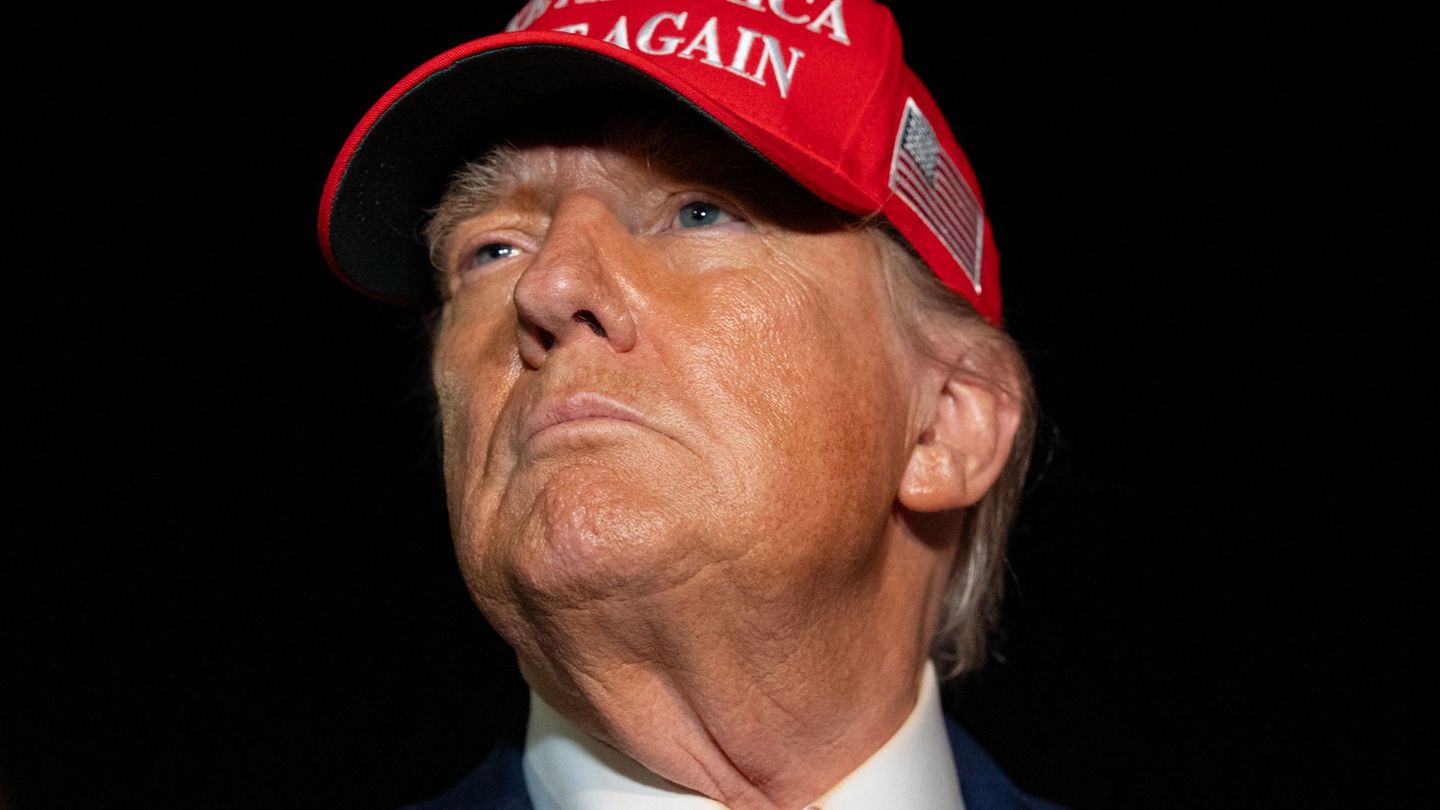Government crisis
Scholz and Merz are discussing new elections
Copy the current link
The Chancellor needs the opposition leader for the remaining term of his minority government. So Friedrich Merz certainly has leverage when it comes to his expectations for a new election.
A new election in March? If opposition leader Friedrich Merz (CDU) and the German economy have their way, things have to happen faster. After the break in the traffic light government, Chancellor Olaf Scholz (SPD) is targeting a March date. Since Scholz still wants to get legislative proposals through the Bundestag, he is dependent on help from the CDU/CSU. Merz spoke to Scholz about the timetable for around half an hour in the Chancellery at midday. Nothing was initially known about the content or results.
The Chancellor wants to ask the vote of confidence in the Bundestag on January 15th. Merz is calling for the vote of confidence to be asked “at the beginning of next week at the latest” in order to then vote in the second half of January.
If the Chancellor asks the vote of confidence in Parliament and does not get a majority, he will ask the Federal President to dissolve the Bundestag. According to Article 68 of the Basic Law, the President has a maximum of 21 days to do this. However, he is not obliged to do this. If he does so, an election must be held within 60 days.
Probably difficult to form a government after new elections
What the formation of a government could look like in the event of a new election is completely open. The Union could currently expect to become the strongest force – but who would be considered as a coalition partner is unclear. In surveys that were conducted before the traffic light broke, the Union parties were recently clearly ahead with values of over 30 percent, while the traffic light parties were significantly weaker than in the 2021 federal election. The SPD was at values of around 15 percent Greens by ten percent, so the FDP even had to worry about returning to the Bundestag. CSU boss Markus Söder has repeatedly categorically excluded black and green.
Merz: “We simply can’t afford it”
“We simply cannot afford to have a government without a majority in Germany for several months and then to conduct an election campaign for several more months and then possibly to hold coalition negotiations for several weeks,” said Merz. CSU regional group leader Alexander Dobrindt said it would be a “disrespect for the citizens” if the government remained in office.
Economy: Every day with the government is a day wasted
Business representatives are also pushing for a quick new election. “Every additional day with this federal government is a lost day,” said the President of the BGA foreign trade association, Dirk Jandura. The Association of the Automotive Industry (VDA), the Association of the Chemical Industry (VCI) and the Association of the Electrical and Digital Industry (ZVEI) also called for a quick new election.
VDA President Hildegard Müller explained that the wars in Ukraine and the Middle East, Donald Trump’s election victory in the USA, open trade issues with China and the state of Germany as a location require a federal government that is maximally capable of acting.
Scholz: Do what is necessary for the country
Scholz is sticking to his schedule. The SPD politician said he would do what was necessary for the country. “Citizens will soon have the opportunity to decide again how things should proceed.”
Scholz wants to offer Merz to quickly look for solutions to strengthen the economy and defense. It’s about questions “that are crucial for our country to work together constructively: in quickly strengthening our economy and our defense.”
Transport Minister Wissing remains in the government – and leaves the FDP
Federal Transport Minister Volker Wissing wants to remain in office until a new election and is leaving the FDP. Chancellor Olaf Scholz (SPD) asked him whether he was prepared to continue in office under the new conditions, said Wissing in Berlin. He promised this to Scholz.
Wissing wants to join the government as a non-party. “I don’t want to be a burden for my party.” He therefore informed party leader Christian Lindner that he was leaving the FDP. This is a personal decision. “I want to stay true to myself.”
Unlike Wissing, his three state secretaries Daniela Kluckert, Oliver Luksic and Gero Hocker do not want to remain part of the federal government. As Kluckert announced on Platform X, the three FDP politicians asked the minister to arrange for their dismissal from the Federal President.
Scholz continues to attack Lindner harshly: “Then you set the country on fire”
The day after the traffic light broke, the Chancellor indirectly accused the FDP leader of social arson. With a view to financing aid to Ukraine from the current budget, Scholz said: “If you now come to the conclusion that we just have to sweat it out casually, then you will set the country on fire.”
This means, for example, that roads cannot be expanded and schools cannot be further developed. In addition, nothing could be done for the economy and jobs.
Lindner receives his discharge certificate from Federal President Frank-Walter Steinmeier at 2 p.m. Scholz, who has accused Lindner of multiple breaches of trust and small-mindedness, will probably be there – at least that’s usual.
Lindner: quickly re-elect
Lindner called on Scholz to immediately create political clarity. “Our country needs a government that not only holds office, but can act. The right thing for our country would be an immediate vote of confidence and new elections,” he said at the party headquarters in Berlin. “In a democracy, no one should be afraid of the voters.”
Scholz advisor Kukies follows Lindner
Scholz’s previous economic advisor, Jörg Kukies, will be Lindner’s successor. The German Press Agency learned this from government circles. ARD and “Bild” had previously reported on it. The Social Democrat is currently State Secretary in the Chancellery. He is the man for economics and finance and negotiates the final documents of the G7 and G20 summits for him.
According to dpa information, the posts of Justice Minister Marco Buschmann and Education Minister Bettina Stark-Watzinger (both FDP) are expected to be taken over by ministers who are already members of the cabinet. It is considered likely that the Greens will take over the research ministry.
Return of red-green after 19 years
After the Chancellor’s break with the FDP, there will be a red-green government again for the first time since 2005. The break in the first coalition of the SPD, Greens and FDP at the federal level came after a bitter dispute over the course of economic and budget policy. During the negotiations, Scholz called for the debt brake to be suspended again.
In view of the impasse, Lindner suggested to the coalition committee that they jointly initiate a new election for the Bundestag. During a break in the meeting, the proposal ended up in public, several media outlets reported on it, whereupon Scholz asked the Federal President to dismiss his finance minister.
dpa
Source: Stern
I have been working in the news industry for over 6 years, first as a reporter and now as an editor. I have covered politics extensively, and my work has appeared in major newspapers and online news outlets around the world. In addition to my writing, I also contribute regularly to 24 Hours World.




